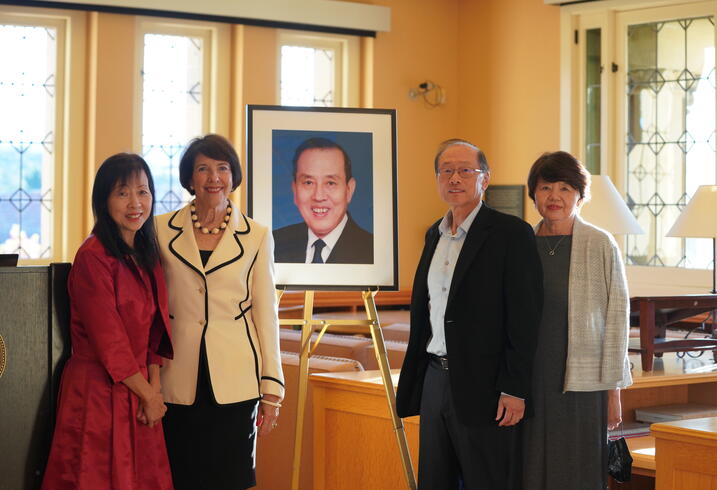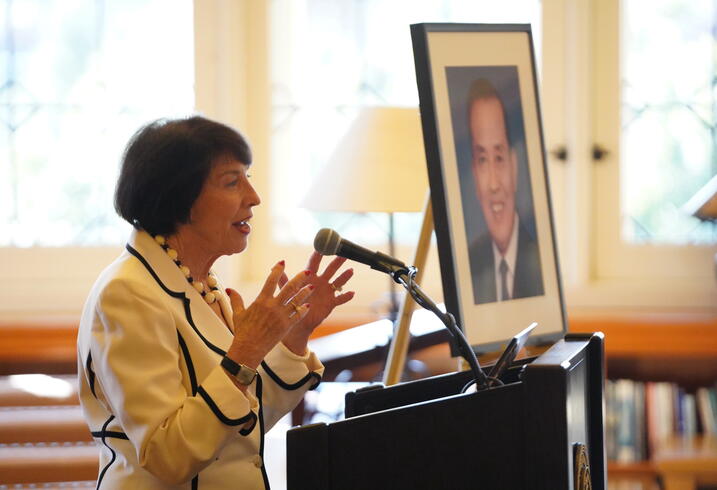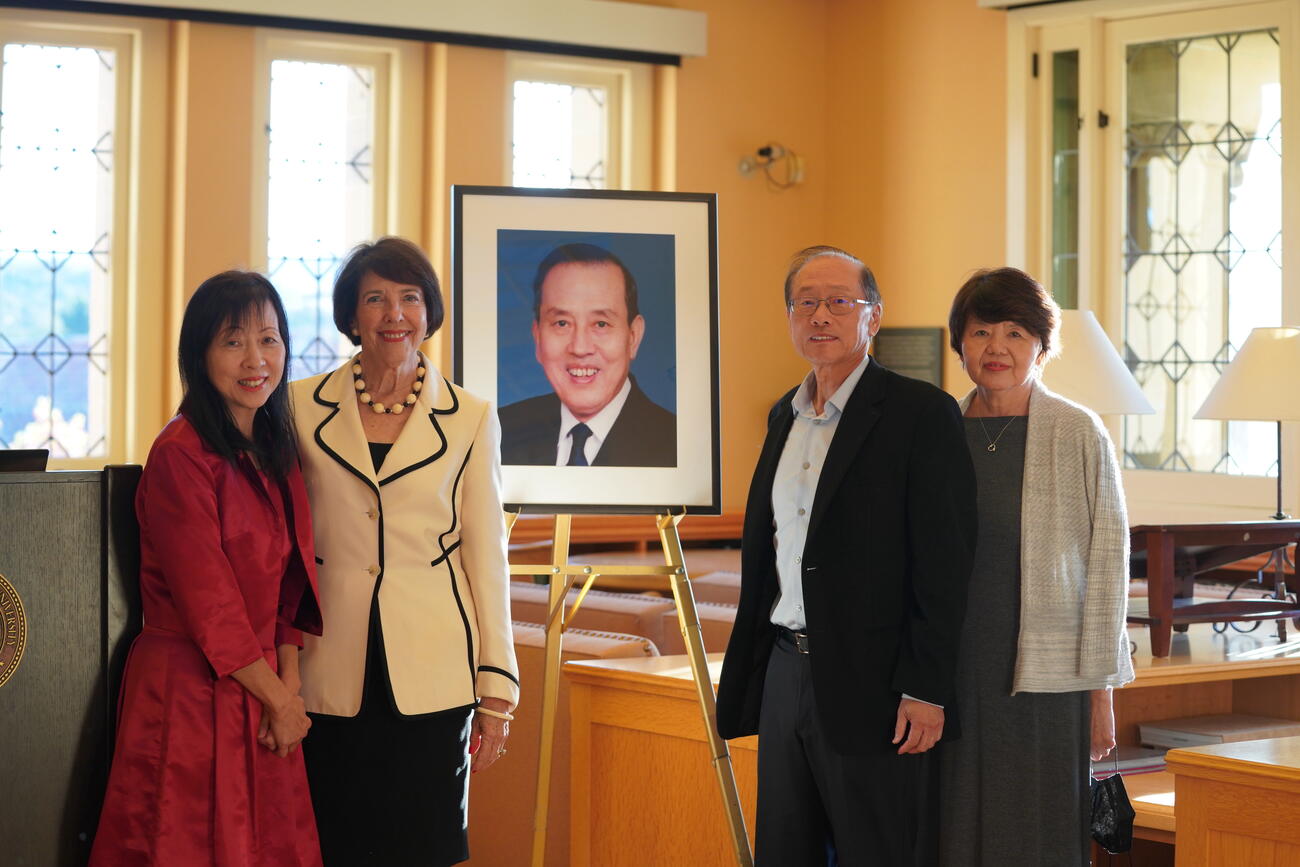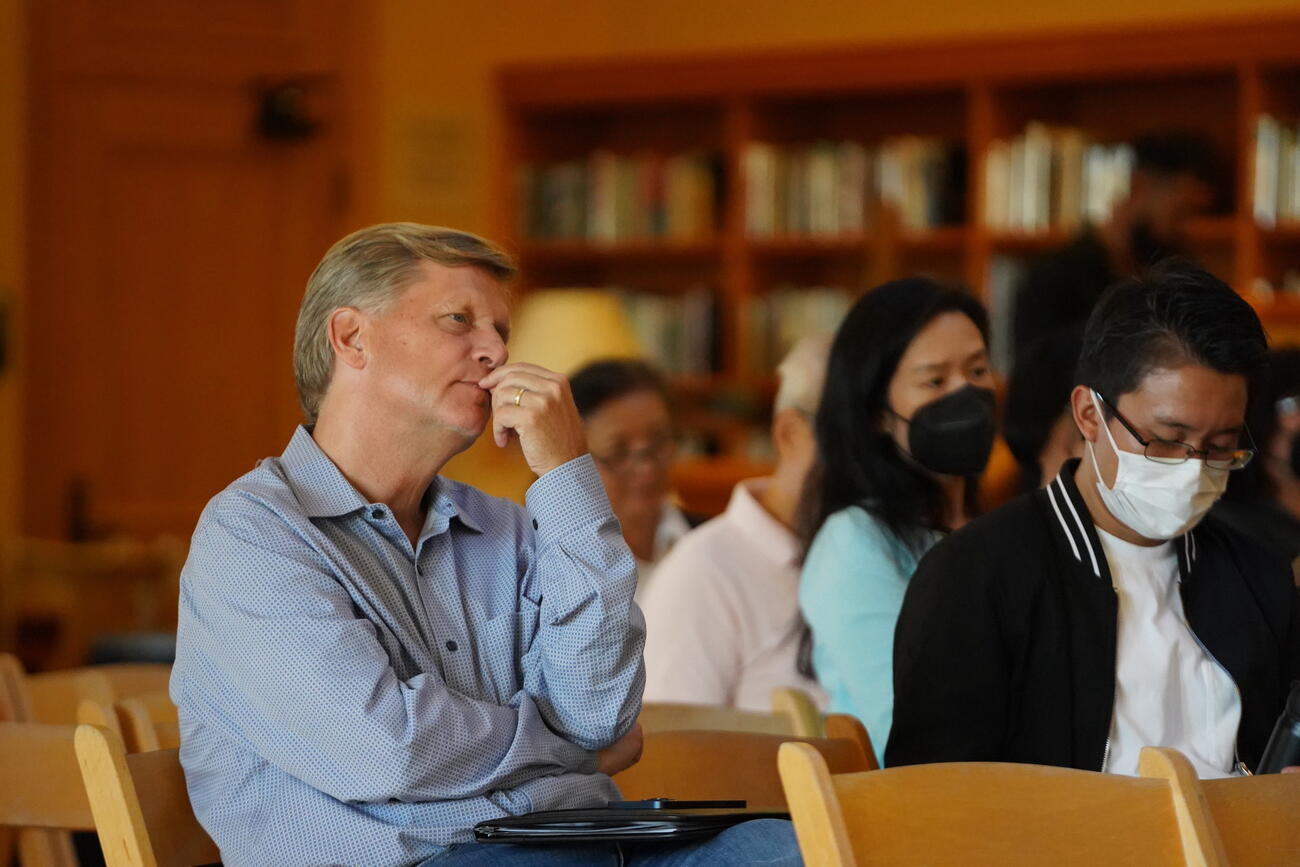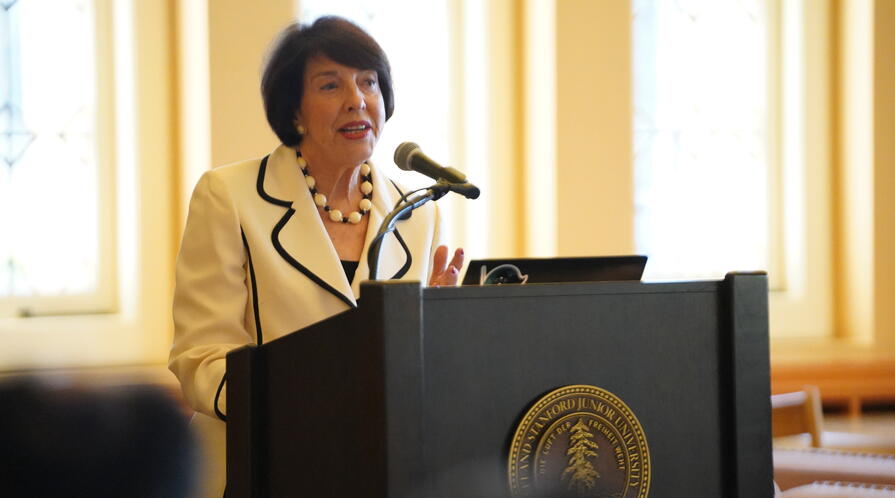Scott Rozelle Joins Track Two Diplomacy Efforts on Scholarly Exchange between the United States and China
In early 2023 Professor Scott Rozelle, SCCEI Co-Director, was asked to participate in a Track Two diplomacy effort between the US and China focusing on the current state of scholarly exchange between the two countries.
There are many ways to build and maintain relationships between nations, the most official way being through track 1 diplomacy, when communication is directly between governments. However, geopolitical climates can make track 1 diplomacy challenging to achieve or even fruitless, if executed, which brings us to Track Two diplomacy. Track Two diplomacy is when people from one country meet with people from another country, in this case scholars from both the US and China, to talk about a specific issue affecting both nations: “Scholarly Exchange between the US and China.” The delegations typically have the blessing of the governments, and often have the ears of government officials after the meetings, but are not made up of government officials or direct government representatives. This encourages more open conversation and genuine camaraderie between the two delegations.
In July 2023, Professor Rozelle joined a group of ten academics from the US, including both professors and think tank professionals, and traveled to China where they met with 12 scholars from China. The group spent three days at Peking University in discussion and went on several site visits around Beijing (to the Foreign Ministry; Xinhua New Agency; American Chamber of Commerce in Beijing; the US Embassy) where they furthered dialogue on the current state of scholarly exchange and how to improve it.
There were several key takeaways from the meetings:
Scholarly exchange is still occurring but at a much lower level compared with 5 to 10 years ago.
Scholarly exchange is suffering collateral damage from the deteriorating US-China relations.
Challenges to scholarly exchange exist within both countries.
Rozelle remarked, “when we [the 10 academics from the US] got together with our academic colleagues from China, we immediately bonded and opened up with a sense of camaraderie, we almost immediately knew we were facing the same challenges on both sides of the Pacific.”
Through discussion, Rozelle documented 15 different issues that are inhibiting research efforts within China, (such as increased privacy laws, shutting off access to public databases, putting strict limits on access to archives, and more,) and 10 things in the US hindering research (such as, not issuing visas to engineering/biomedicine/science Ph.D students and post-docs from China).
The biggest issue both sides face is the perception that scholarly exchange may compromise national security.
A small fraction of scholarly exchange is related to national security issues, the other share of scholarly exchange is much more related to positive outcomes in research, technology, and national growth. A secular decline of scholarly exchange is going to have large negative impacts on growth, equity and happiness in both countries as well as around the world.
Leaders in both countries need to define what types of scholarly exchange concern national security.
What can be done to improve scholarly exchange? Both countries have stated that scholarly exchange is related to national security, which is what has led to the decline (and prohibition, in some cases,) of scholarly exchange.
The challenge is that there has been no definition or clarification given of what types of scholarly exchange are sensitive to this matter. As a result, lower-level bureaucrats both in the United States and in China have taken risk-averse approaches in implementing these efforts by making it difficult to do almost all research. The two groups of scholars almost unanimously agreed that what is urgently needed is for upper-level leaders in the two countries to officially define what specific topic areas are national security concerns, and which are not.
In early October 2023 the delegation from China will join the US delegation in Washington DC to continue the conversation and strategize on how to foster more scholarly exchange between the two nations.
Rozelle is currently working on producing a brief that will seek to demonstrate both the benefits of US-China scholarly exchange as well as the cost of the disruption. Once published, the brief will be part of the overall effort as well as being linked here.
Read More
SCCEI Co-Director Scott Rozelle joined a select group of ten academics from the U.S. to participate in a Track Two diplomacy effort between the U.S. and China. Together, they traveled to Beijing where they met with 12 scholars from China to discuss the current state of scholarly exchange between the two countries, as well as strategies to improve it.

 FSI researchers strive to understand how countries relate to one another, and what policies are needed to achieve global stability and prosperity. International relations experts focus on the challenging U.S.-Russian relationship, the alliance between the U.S. and Japan and the limitations of America’s counterinsurgency strategy in Afghanistan.
FSI researchers strive to understand how countries relate to one another, and what policies are needed to achieve global stability and prosperity. International relations experts focus on the challenging U.S.-Russian relationship, the alliance between the U.S. and Japan and the limitations of America’s counterinsurgency strategy in Afghanistan.














